Everything You Need to Know Before Become a Musical Theater Fan (Fro Beginners)
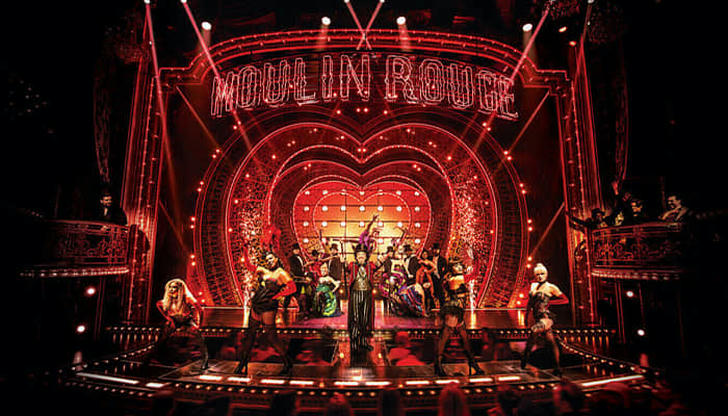
Musical theater as an art form has now captivated fans all over the world with its immense popularity! But did you know that musicals are literally everywhere? Are there many misconceptions about musicals that you might have? Wondering how to start your journey into musical theater as a newbie? This article will unveil the charm of musical theater from ten different aspects. We've got no dry theories, just down-to-earth content. So, let's get started!
1. Musicals are everywhere, aren't they?
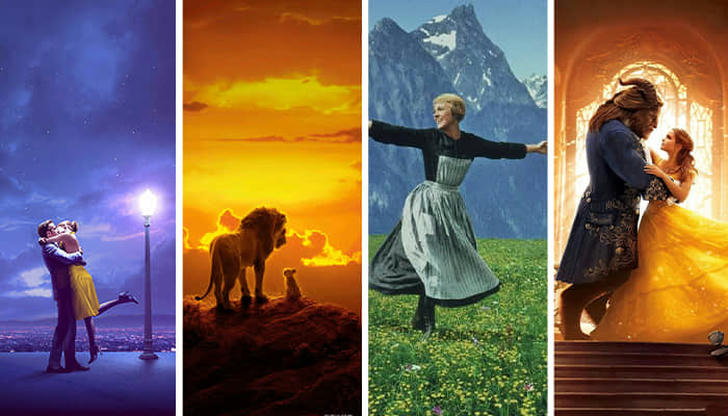
Actually, you probably know musicals already. While it's true that musicals are performed in theaters, they don't come with a highbrow threshold for appreciation, because they've been appearing in various forms all around us! Musicals have plots, dialogues, and of course, more songs. These songs are strung together to fully convey the development of the plot and to express the emotions of the characters.
The 'musical films' in cinema are actually variants of musical theater. Many musical films are adapted from stage musicals, and quite a few stage musicals are adapted from films. If you're a fan of movies like 'La La Land', 'The Lion King', 'The Sound of Music', 'Beauty and the Beast' ... then you'll definitely like the style of musical theater.
2. What's the difference between a musical and an opera?
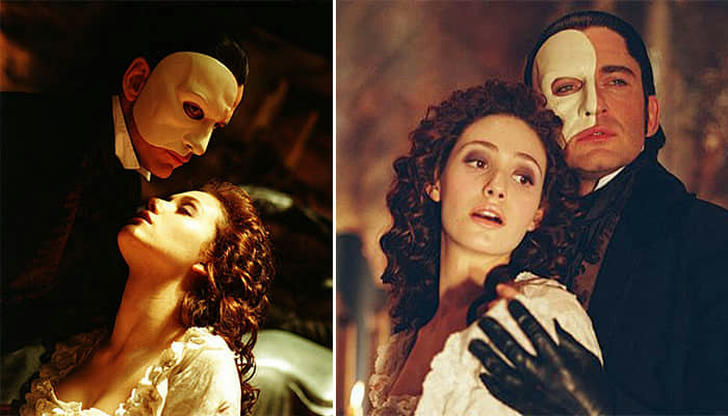
"Phantom of the Opera" takes place in an opera house, but it's not an opera.
'Opera' and 'musical' are two distinct forms of performing arts. While both involve singing on stage, musicals are more about pop singing, with a mix of dancing and acting, and you can find everything from rock to folk to rap. If you see actors with microphones, that's usually a musical. On the other hand, operas are all about singing, with a focus on belting out those high notes in a way that fills every corner of the opera house, and the performers typically don't use microphones.
3. Is there dancing in musicals?
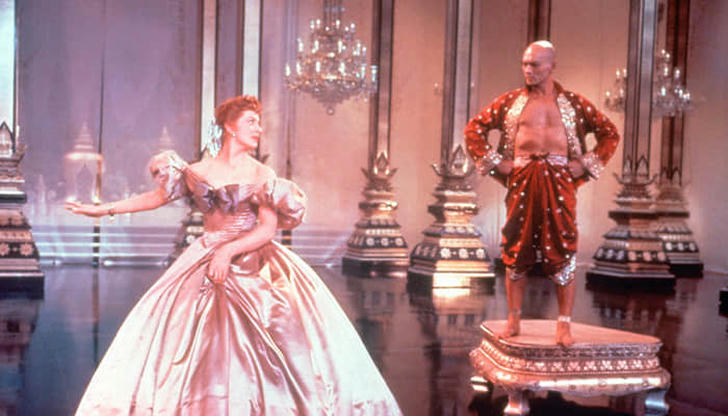
Yep, musicals are all about the dance! You name it, they've got it.
Musicals are like movie musical films, with singing and dancing all mixed up. Sometimes, when the plot or a character's emotions hit a point where words or lyrics just can't do justice, it's time to let loose with some high-energy dance moves.
Musicals give a stage to all kinds of dance: there's ballet in "West Side Story," eye-catching jazz in "Chicago," and even romantic waltzes in "The King and I."
4. Are there “four main musicals”?
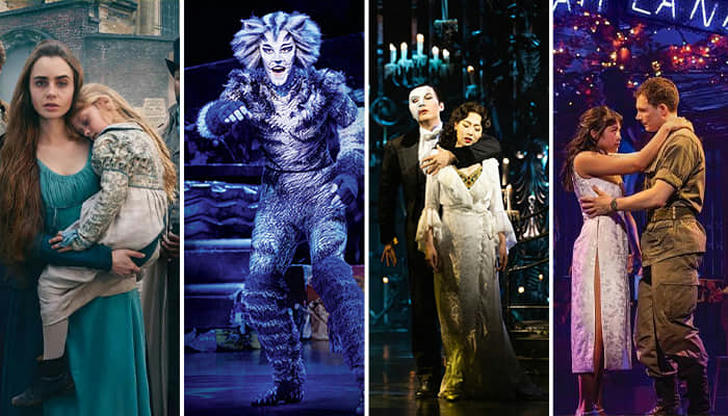
A lot of folks know the four musicals: "Les Misérables," "Cats," "The Phantom of the Opera," and "Miss Saigon." But the real deal is that they're actually known as the "1980s Cameron Mackintosh Mega Musicals." All of these were brought to life by the famous musical producer Cameron Mackintosh, with catchy tunes and extravagant sets (think of the chandelier dropping from the ceiling in "The Phantom of the Opera" or the helicopter that actually takes on stage in "Miss Saigon").
5. Do musicals have live orchestras?
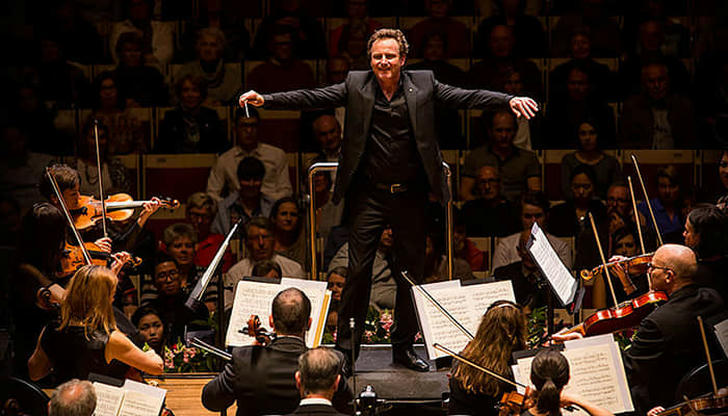
Most musicals have a live band.
In the world of musical theater, the norm is to have a live band backing up the performance. The size can vary, from a small ensemble of four to a big band of nearly 30 musicians, like in "The Phantom of the Opera." Depending on the musical's design, the orchestra might hidden under the stage (like in "Cats"), or even placed on stage as part of the show (like in "Chicago").
But why do I say "most"? Well, there's a special case with those beloved French musicals, which often use prerecorded music instead of a live band during performances.
6. Where can I watch a musical?
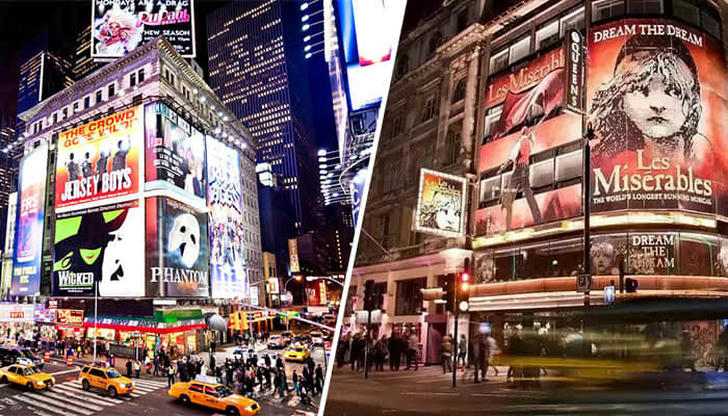
Broadway in New York and the West End in London are the big leagues for musicals, with close to a hundred theaters each hosting different shows at the same time. It's worth mentioning that in these hubs, if a musical is a resident production, it means it's playing non-stop in the same theater, eight shows a week. Take "The Phantom of the Opera" for example — it's been running continuously in London for over 30 years.
If you're looking to get your hands on tickets, just hit up the internet with the show's name and you'll find all sorts of options. As for the seats, they come with a price tag that's all about location — the closer to the stage, the more you'll be shelling out. If you're still on the fence about heading to the theater, you could always start by checking out some clips of the famous songs from musicals.
7. Why there is double casting?
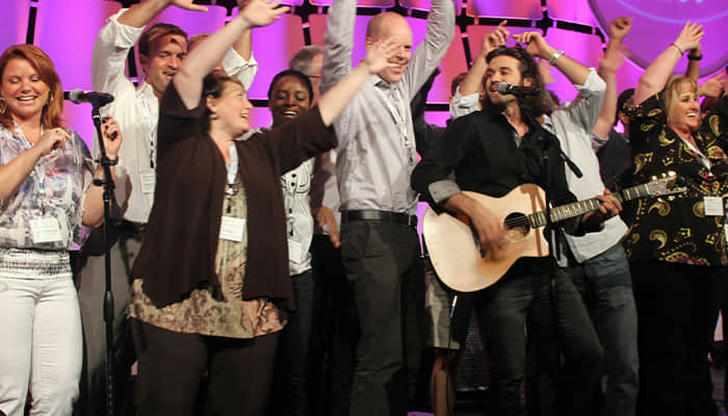
With the grueling schedule of eight shows a week, musicals typically have two rotating casts to keep the quality: the A-Team takes on about six shows a week, while the B-Team steps in for the other two. And of course, there's always an understudy ready to step in if an actor's under the weather.
Does A-Team sing better? Not necessarily. After rigorous training, both teams are pretty evenly matched. Many actors also post their show schedules on their websites, so fans can choose which performance to catch.
As for understudies, they're usually talented performers with less experience but loads of potential. Next time you spot an understudy on stage, keep an eye out — you might just be witnessing the rise of a future star.
8. What should I wear to a musical?
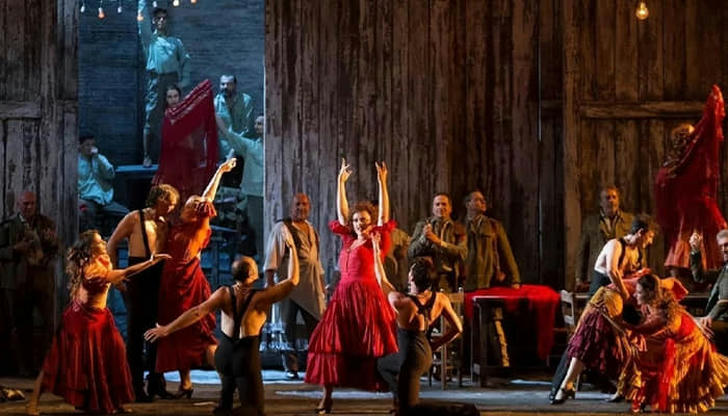
Just dress neat and clean. Musicals are more down-to-earth compared to some other performing arts. In ancient times, it grew from the public, and whether the audience could burst into applause in the hand determined whether a play could go on.
In New York's Broadway and London's West End, except for opening nights where invitees need to dress up. You can keep it casual for regular shows. Just make sure you're tidy and respectful.
But really, beyond what you wear, it's all about basic etiquette when you're watching. Keep the chatter down, no spoilers, and definitely no phones out. Patti LuPone, the queen of musicals, once stopped a performance of "Gypsy" because an audience member was taking pictures.
9. Are there any classic musicals to get me started?
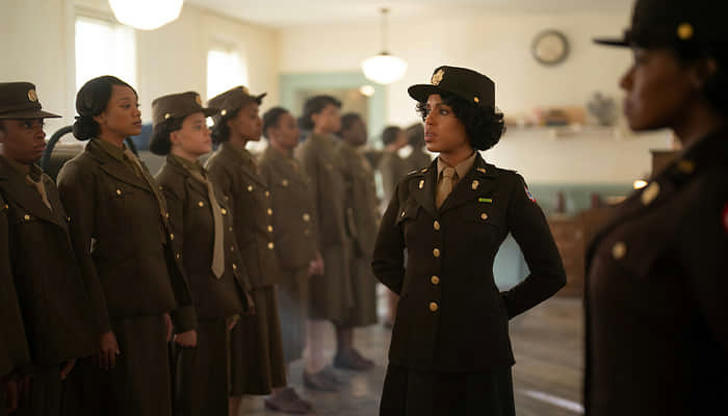
If you're into tragic romance, go for "The Phantom of the Opera."
For epic tales, dive into "Les Misérables."
For a taste of French flair, check out "Notre-Dame de Paris."
If you're into jazz dance, "Chicago" is your jam.
For a grand stage, "Miss Saigon" is the way to go.
For stunning costumes, "Elisabeth" is a treat.
For stories about female liberation, "SIX" is a must-watch.
10. Are there any best songs in musicals of all time?
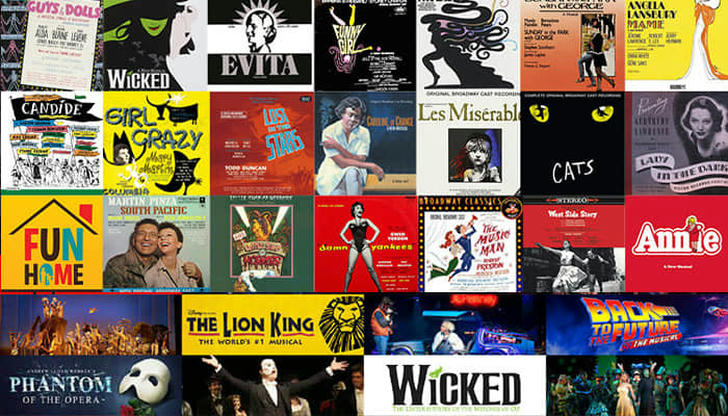
"With One Look" from Sunset Boulevard (1950)
"The Music of the Night" from The Phantom of the Opera (1986)
"All I Ask Of You" from The Phantom Of The Opera (1986)
"All That Jazz" from Chicago (1975)
"Ex-Wives" from SIX (2017)
"Defying Gravity" from Wicked (2003)
"Hakuna matata" from The Lion King (1997)
"Satisfies" from Hamilton (2015)
"On Day More" from Les Misérables (1987)
"On My Own" from Les Misérables (1987)
"Memory" from Cats (1982)
"C'est Un Chapeau" from Le Petit Prince (2018)
"Ding Dong" from Le Rouge et le Noir - L'Opéra Rock (2016)
"Le Temps des cathédrales" - Notre-Dame de Paris (1998)
"Seasons of Love" from Rent (1996)
"Hello, Dolly" from Hello, Dolly! (1964)
"A Little Priest" from Sweeney Todd (1979)
"Don’t Cry For Me Argentina" from Evita (1978)
"Dancing Queen" from Mamma Mia! (1999)
"Don’t Rain On My Parade" from Funny Girl (1964)

